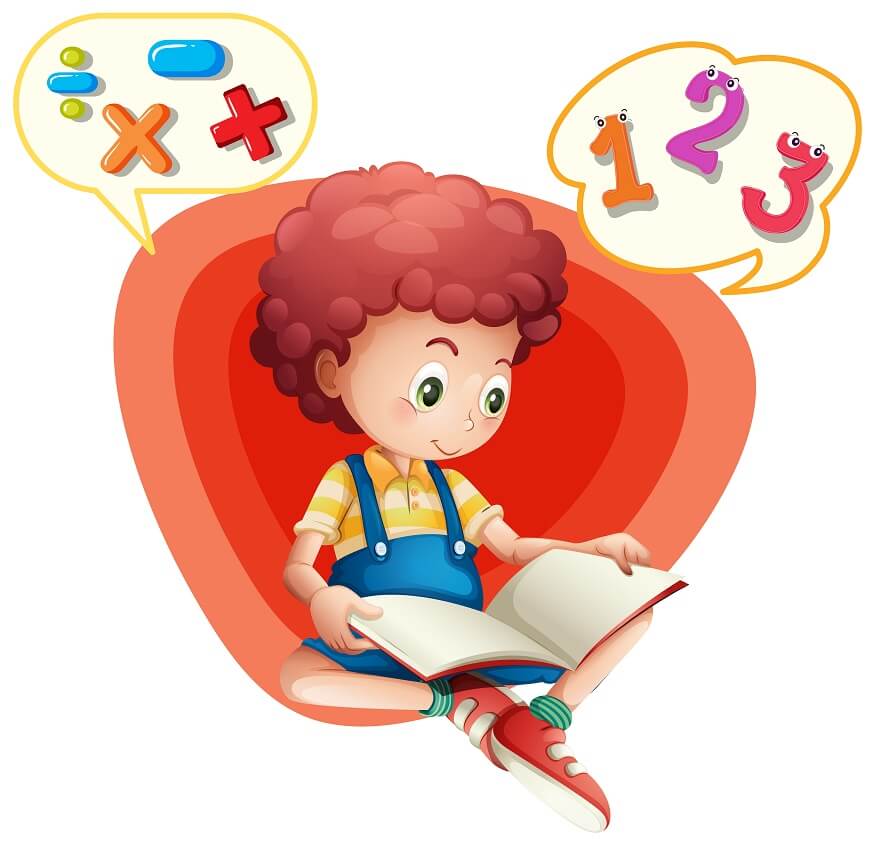Maths is all around us, and it’s never too early to start introducing your toddler to basic mathematical concepts. In this blog, EuroSchool helps you in
Also Read: What is Minuend? Meaning and Examples
Introducing maths to toddler
There are many creative ways to introduce maths to your toddler. The key is to integrate maths concepts into everyday activities and play. Here are some strategies:
Count Everything: Make a habit of counting anything and everything. Count the number of stairs as you go up or down, the number of apples in a basket, or the number of cars passing by. This introduces the concept of numbers and counting in a natural, informal way.
Play Sorting Games: Give your child a mixture of objects and ask them to sort them. They can sort by colour, size, shape, or type. Sorting is a basic maths skill that also improves fine motor skills.
Use Building Blocks: Building blocks are a fantastic tool for teaching maths. Not only can children learn about shapes, but they can also count the blocks, compare heights of different structures, and understand the basic concept of addition and subtraction as they add or remove blocks.
Storybooks: Many children’s books incorporate numbers and counting. Reading these together can make maths enjoyable and relatable. Books like “Ten Little Monkeys” or “The Very Hungry Caterpillar” introduce counting in an engaging storytelling format.
Cook Together: Simple cooking activities offer an opportunity to explore maths. Count ingredients, discuss quantities, or cut food into halves or quarters to introduce basic fractions.
Use Measuring Tools: Let your child experiment with measuring cups, spoons, or a ruler. This introduces the concept of measurement and helps them understand different units of measure.
Online Learning Games: Numerous online games and apps are designed to make learning maths fun for children. They can practise counting, sorting, and basic arithmetic in an interactive way.
Outdoor Maths: Use nature to teach maths. Count petals on a flower, classify rocks by size or colour, or observe patterns in leaves or shells.
Board Games: Many board games involve counting, such as ‘Snakes and Ladders’, and others involve strategic thinking, which is another aspect of maths.
Also Read: 10 ways to Improve Numeracy Skills in Primary Schools
When should you introduce maths to your toddler
Introducing maths to your toddler can begin as early as their infancy. However, this doesn’t imply teaching them arithmetic or algebra at this stage, rather it involves introducing them to basic concepts of counting, quantities, and patterns in a fun and engaging manner. Below are some general stages to consider:
Early Infancy (0-12 months): Though this may seem very early, even babies can begin to understand the concepts of “more” and “less”. They can also start to recognise patterns in their daily routines. These are all preliminary forms of understanding mathematical concepts.
Toddler (1-3 years): You can start incorporating more explicit maths learning during this stage. This could include counting objects, recognising basic shapes, and starting to understand the concept of time (like morning, afternoon, and night).
Preschool (3-5 years): As your child grows, their capacity to understand more complex maths concepts will grow as well. At this stage, you might start to introduce activities that involve comparing sizes, understanding the concept of quantities, recognising and creating patterns, and even simple addition and subtraction using tangible items.
Also Read: What are Composite Numbers
Why should you introduce maths to your toddler
Introducing maths to your toddler at an early age can provide various benefits. Here are some key reasons:
Cognitive Development: Engaging in simple maths activities helps build a child’s thinking and problem-solving abilities, contributing significantly to their cognitive development.
Academic Preparedness: Early exposure to maths helps lay the foundation for numeracy skills, preparing your child for academic learning in school. It can help them understand and grasp more complex mathematical concepts later on with greater ease.
Daily Life Skills: Maths is embedded in daily life activities. From telling the time to shopping, cooking, and more, basic maths skills help us navigate our day-to-day life. By introducing these concepts early, you’re helping your child understand and interact with the world around them effectively.
Encouraging Curiosity and Understanding: As toddlers learn about numbers, shapes, and patterns, they start understanding their environment in a new light. This understanding promotes their natural curiosity and encourages them to explore further.
Future Success in Maths: Research indicates that children who gain a good grounding in early maths skills often have an advantage in maths education as they grow older.
To introduce maths to your toddler, it’s crucial to make it fun and engaging. You can incorporate counting, shapes, and size recognition in play, story time, and during routine activities. This makes learning maths an enjoyable experience and helps instil a positive attitude towards the subject.
Also Read: What are Cardinal Numbers? Definition, List, Example
Maths skills that toddlers usually possess
Here are some maths activities that toddlers typically know:
Counting: Toddlers can start counting objects by age 2. They may not be able to count accurately at first, but they will eventually get the hang of it. You can help your toddler practice counting by counting everything you can, from the number of fingers on their hands to the number of steps it takes to get from the couch to the kitchen.
Patterning: Toddlers can start recognizing patterns at a young age. You can help your toddler recognise patterns by pointing them out in the world around you, such as the number of petals on a flower or the order of colours in a rainbow. You can also create your own patterns with objects, such as blocks or toys.
Sorting: Toddlers can start sorting objects by size, colour, or shape at around age 2. You can help your toddler sort objects by providing them with a variety of objects and asking them to sort them into different groups.
Measuring: Toddlers can start understanding concepts of measurement, such as length, weight, and volume, at around age 3. You can help your toddler learn about measurement by using measuring cups and spoons to measure ingredients when you are cooking. You can also help them measure objects by using string or yarn.
Geometry: Toddlers can start identifying basic shapes, such as circles, squares, and triangles, at around age 3. You can help your toddler learn about shapes by pointing them out in the world around you and providing them with toys or objects that are shaped like different shapes.
Also Read: 12 Key Benefits of Learning Abacus for Student
Euroschool believes that it is important for toddlers to have a positive attitude towards maths. So, we create a fun and supportive learning environment where toddlers feel comfortable making mistakes and asking questions.










